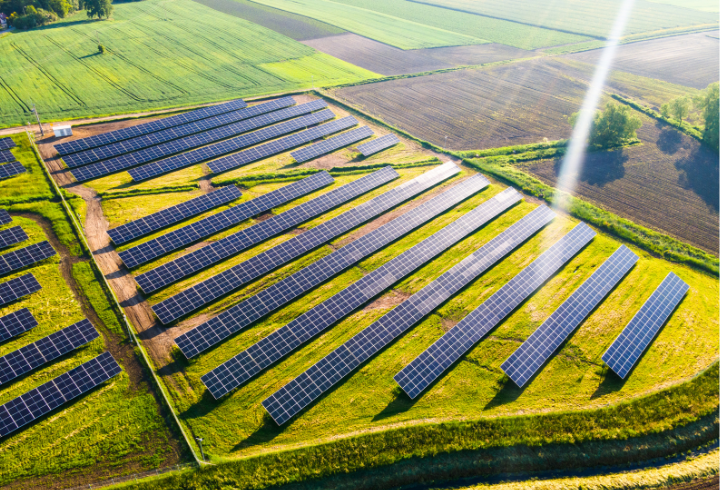For years, Ghana has depended extensively on fossil fuels to power its rising needs.
Despite bountiful renewables like solar, wind, and hydropower readily available, the country encountered difficulties effectively harnessing these sustainable sources.
The traditional energy arena was firmly entrenched, so transitioning appeared to be a steep challenge.
But as climate change impacts grew clearer, and fossil costs kept unpredictable swings, Ghana’s leaders realized the pressing need to pilot a fresher, greener path for the country’s future energy direction with the Ghana renewable energy model.
Their model merits studying as worldwide cooperation accelerates to mitigate climate threats and strengthen global resilience.
Ghana Renewable Energy Landscape
Ghana, a nation located along the Atlantic Ocean in West Africa, has experienced steady economic growth over the past few decades.
With a population of roughly 35 million people, the country has emerged as a regional powerhouse, boasting a diverse economy spanning sectors like agriculture, mining, manufacturing, and services.
However, meeting the nation’s rising energy needs sustainably and cost-effectively has been an ongoing challenge.
Overreliance on Fossil Fuels and Barriers to Renewables
Ghana renewable energy reliance on fossil fuels for electricity generation has come at a significant environmental and economic cost.
The burning of oil, natural gas, and coal has contributed to rising greenhouse gas emissions, exacerbating the effects of global climate change.
Additionally, the volatility of international fossil fuel prices has strained Ghana’s budget and made energy costs for businesses and households increasingly unpredictable.
Despite possessing abundant renewable energy resources, such as solar irradiation, wind potential along the coast, and hydropower from major rivers like the Volta, Ghana has historically struggled to capitalize on these clean energy sources fully.
Outdated regulatory frameworks, lack of investment in renewable technologies, and an entrenched fossil fuel industry have all hindered the growth of the renewable energy sector.
Previous efforts to incentivize renewable energy adoption, such as feed-in tariffs and tax exemptions, have had limited success due to inconsistent implementation and lack of long-term policy certainty.
Moreover, the lack of a skilled workforce trained in renewable energy technologies has posed a significant barrier to widespread deployment.
Ghana Renewable Energy Strategy
Recognizing the urgency of the situation, Ghana’s government embarked on an ambitious national strategy to accelerate the adoption of renewable energy sources and promote energy efficiency.
This multi-faceted approach involved several key initiatives:
- Regulatory and Policy Reforms: The government enacted the Renewable Energy Act in 2011, which established a comprehensive legal and regulatory framework to promote the development and utilization of renewable energy resources. This act set targets for renewable energy integration, streamlined licensing procedures, and created incentives for private-sector investment.
- Institutional Strengthening: To drive the Ghana renewable energy agenda, the government bolstered the capacity and resources of key institutions like the Energy Commission and the Renewable Energy Directorate. These bodies were tasked with developing renewable energy policies, conducting resource assessments, and facilitating project development.
- Public-Private Partnerships: Ghana actively sought partnerships with international organizations, development banks, and private companies to attract investment and expertise in renewable energy projects. This included initiatives like the Scaling-up Renewable Energy Program (SREP), funded by the Climate Investment Funds, which supported the development of utility-scale solar and wind projects.
- Human Capital Development: Recognizing the need for a skilled workforce, Ghana launched training programs and curricula in renewable energy technologies at vocational schools, universities, and technical institutes. These efforts aimed to build local expertise in areas such as solar photovoltaic (PV) system design, installation, and maintenance.
- Energy Efficiency Measures: In parallel with expanding renewable energy generation, Ghana implemented measures to reduce energy demand and improve efficiency. This included initiatives like the Appliance Energy Efficiency Standards and Labeling program, which aimed to phase out inefficient household appliances and promote energy-efficient alternatives.
Significant Progress and Ongoing Transition
Ghana’s multi-pronged approach to embracing renewable energy has yielded significant results.
As of 2022, renewable sources accounted for over 31.6% of the country’s electricity generation mix, with hydropower and solar leading the way.
The utility-scale Bui Solar Park, with a capacity of 50 MW, is one of the largest grid-connected solar facilities in West Africa.
Furthermore, Ghana has experienced a surge in off-grid and mini-grid renewable energy solutions, bringing electricity access to remote communities previously unserved by the national grid.
The country’s renewable energy industry has also fostered job creation and economic diversification, with local companies emerging as manufacturers, installers, and service providers.
However, the Ghana renewable energy journey is far from complete.
Lessons for Sustainable Energy Transformation
Ghana’s pursuit of sustainable energy transformation carries enlightening lessons for other nations aiming to transition to renewable sources.
Crafting lucid regulatory and policy structure proves integral, providing certainty crucial to drawing investment and encouraging industry growth.
Public-private collaborations accelerate deploying renewable technologies, accessing global knowledge, and financing pools.
Forging a local skilled workforce sustains the renewables sector’s long-term progression and maturation.
A balanced method combining production with efficiency optimization harvests resources optimally while reducing total demand.
Enduring commitment and perseverance from government and partners prove necessary to overcome obstacles and challenges posed by entrenched interests and systemic barriers limiting renewable adoption.
Ghana’s experience illuminates pitfalls to avoid and techniques to apply for any country prioritizing sustainability responsibly. Their model merits study as a global dedication to mitigating climate dangers and cultivating resiliency gains momentum cooperatively.



